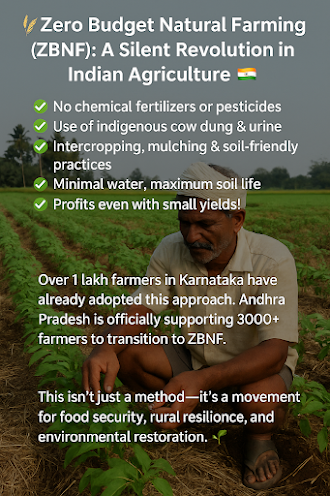🌾Black Rice: The Purple Grain
🌾 Black Rice: The Purple Grain Reviving Farms and Forests in Assam & West Bengal
In the quiet fields of Assam and West Bengal, a vibrant transformation is underway. It's not just about farming — it's about reclaiming lost traditions, healing the soil, and restoring dignity to smallholder farmers.
Welcome to the Purple Revolution, powered by Black Rice.
🟣 What is Black Rice?
Black Rice, also known as “Forbidden Rice” or “Chakhao” (in Manipur), is a unique variety of rice known for its dark purple hue. Its color comes from anthocyanins — powerful antioxidants that make it as nutritious as it is beautiful. But beyond its health benefits, Black Rice holds the potential to transform agriculture and livelihoods.
📍 Where Is It Grown?
In Eastern India, Black Rice cultivation is gaining momentum in several districts:
🗺️ Assam:
-
Golaghat
-
Dhemaji
-
Kamrup
Jorhat
🗺️ West Bengal:
-
Cooch Behar
-
Nadia
-
Bankura
These areas, rich in indigenous knowledge and agroecological wisdom, are now at the forefront of sustainable farming practices.
🌿 Environmental Benefits of Black Rice
Black Rice is more than a healthy grain — it’s an eco-friendly crop that supports climate-resilient agriculture:
✅ Organically Grown: It requires minimal chemical inputs, reducing soil and water pollution.
✅ Soil Restoration: The traditional seed varieties support long-term fertility and microbial health.
✅ Water-Efficient: Grown with less water than conventional rice varieties.
✅ Promotes Biodiversity: Encourages the return of traditional mixed cropping and local seed conservation.
Black Rice is a symbol of harmony between agriculture and nature.
👩🌾 Socio-Economic Impact on Farmers
This grain is not just helping the soil — it’s changing lives:
💰 2–3x Higher Market Prices: Compared to white rice, Black Rice fetches premium prices in health-conscious and organic markets, both domestic and international.
🌍 Market Access: Farmers are connecting to organic value chains and exports.
🤝 Women Empowerment: Many Black Rice projects are led by Self-Help Groups (SHGs), creating opportunities for rural women entrepreneurs.
💼 Local Livelihoods: It supports cottage-scale processing, packaging, and marketing jobs.
Farmers no longer see Black Rice as a risky crop — it’s now seen as a path to stability and pride.
🌾 Black Rice Is a Movement, Not Just a Crop
At Mrittika Harvest, we’re proud to support farmers and communities who are making this shift — combining agroecology, indigenous knowledge, and market intelligence.
Black Rice is bridging the gap between tradition and innovation, offering an inspiring model for future-ready farming in India.
📢 How You Can Support
-
Buy locally grown Black Rice from trusted producers
-
Promote community-supported agriculture (CSA)
-
Follow and support farmer cooperatives and SHGs
-
Share stories of sustainable farming to spread awareness
🔗 Join the Purple Movement
We believe every grain counts — for the soil, the farmer, and the future.
Follow us for updates on farmer success stories, training programs, and Black Rice collaborations.
🌐 nffs2021@gmail.com
📱 Instagram | Facebook | LinkedIn | WhatsApp Channel
#BlackRice #Chakhao #AssamAgriculture #WestBengalFarming #OrganicFarming #MrittikaHarvest #SustainableIndia #Agroecology #RuralDevelopment #SHGempowerment




Comments
Post a Comment